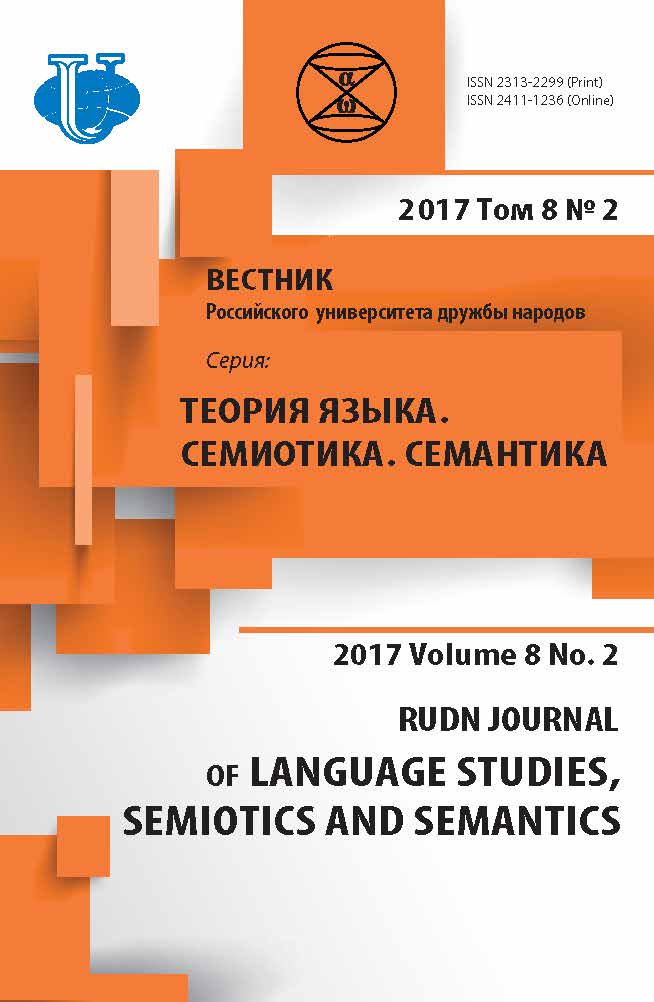Combination of Verbal Representative Means of Concepts
- Authors: Fedulova MN1
-
Affiliations:
- Military University
- Issue: Vol 8, No 2 (2017)
- Pages: 394-402
- Section: ARTICLES
- URL: https://journals.rudn.ru/semiotics-semantics/article/view/16349
- DOI: https://doi.org/10.22363/2313-2299-2017-8-2-394-402
- ID: 16349
Cite item
Full Text
Abstract
The article is devoted to the terms and process of concept emergence, the means of their verbal realization (expression). The author proves that concept is not a form of an idea, the concept is an associative mental entity, activated in the forms of the thinking activity. There is a certain conceptual part in different forms of verbalization idea (conclusion, judgement, idea). The emergence of a conceptual part starts with the cognitive activity, which consists of categorization stage, conceptualization stage and verbal realization as the final stage. In the presence of some discursive terms this process is always reciprocal, i.e. the final stage of our cognitive activity is our verbal realization of the concept and the final stage of our verbal realization of the concept is our cognitive activity. The author states that the scale and the form of the verbal realization of the concept can vary from a word to the text and vice versa.
About the authors
M N Fedulova
Military University
Author for correspondence.
Email: mfedulova@mail.ru
14, Bolshaya-Sadovaya str., Moscow, Russia, 111033
References
- Benvenist, E. (2002). General linguistics, 2nd ed. Moscow: Editorial URSS. (in Russ).
- Shagiyeva, R.V. (2007). Theory of law. Study book. Kaluga. (in Russ).
- Brown, N., & Deegan C. (1998). The public disclosure of environmental performance information — a dual test of media agenda setting theory and legitimacy theory. Accounting and Business Research, 1, 21—41.
- Mousa, G.A. & Hassan, N.T. (2015). Legitimacy theory and environmental practices. International Journal of Business and Statistical Analysis, 2(1), 41—53.
- Marks, K. & Engels, F. (1955). Works. Vol. 3. Moscow: State publishing house of political literature. (In Russ).
- Mackormak, E. (1990). Cognitive theory of metaphor. In: Theory of metaphor. Moscow: Nauka. p. 358—387. (In Russ).
- Kobozeva, I.M. (2001). Semantic issues of analyses of political metaphor. Moscow State University Bulletin. Series 9. Philology, 6, 132—149. (in Russ).
- Kubryakova, E.S. (1999). Linguistic comprehension and linguistic world view. In: Philology and Culture. Materials of the international conference. Part 1. Tambov. p. 6—13. (in Russ).
- Teliya, V.N. (1988). Metaphorization and its role in the linguistic picture of the world. In: Human factor in language: Language mechanisms of expressiveness. Moscow. (in Russ).
- Chudinov, A.P. (2003). Metaphorical mosaic in a modern political communication. Monograph. Ekaterinburg. (in Russ).
Supplementary files












